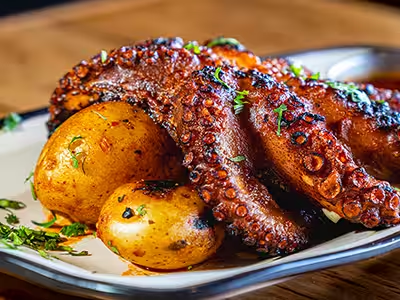Discovering Mariachi: Its History, Culture, and Global Impact
The Story of Mariachi: A Deep Dive into Mexico's Iconic Sound
Reading time: 1 minute, Discovery Chepe Id-743-FAR
Published on 06-10-2025

Photo: Government of Mexico.
The sound of mariachi is one of Mexico's most recognized musical symbols. Its vibrant melodies, traditional costumes, and cultural weight have captivated audiences across generations. But where did this beloved genre come from? And how did it evolve into the rich art form we know today?
Roots of mariachi: A deep cultural fusion
Mariachi music traces its roots to the western region of Mexico, especially the states of Jalisco, Colima, Nayarit, and Michoacán. It began to emerge during the 18th century as a regional folk music tied to rural life, celebrations, and Catholic traditions.
The original ensembles were string-based. Violins, guitars, vihuelas (a small, high-pitched guitar), and the guitarrón (a large bass guitar) were the core instruments. There were no trumpets back then. The music was acoustic, lively, and performed mainly at weddings, festivals, and community gatherings.
What does 'mariachi' mean?
There are different theories about the origin of the word "mariachi." One popular but disputed claim suggests it came from the French word *mariage* (marriage), supposedly brought during the French intervention in Mexico. However, most historians and linguists now agree the term is indigenous, possibly from the Coca or Náhuatl languages.
The mariachi as we know it today began in the 20th century
1- Early 1900s: Mariachi began to migrate from rural areas to cities. Groups traveled to Guadalajara and Mexico City, gaining visibility and refining their sound.
2- 1930s-1940s: The genre was broadcast on radio and featured in Mexican cinema during the golden age of film. Mariachi Vargas de Tecalitlán, considered the most influential mariachi group in history, helped define the modern mariachi format.
3- 1950s: This is when a major change occurred the trumpet was introduced into mariachi music.

Unveiling the Roots: The Evolution of Mexican Mariachi Music
Photo: Mariachi Vargas de Tecalitlán (1931), one of the oldest and most representative groups of Mexican mariachi.
The introduction of the trumpet: A turning point
Before the 1950s, mariachi music did not include brass instruments. But as mariachi moved to urban centers and gained popularity, musicians began adding the trumpet to enhance the sound and reach a broader audience. This new sound brought brilliance and power to the ensemble, allowing mariachi to stand out on stage and in recordings.
According to mariachi.org, one of the earliest trumpet players in mariachi was Miguel Martínez, who joined Mariachi Vargas in 1942. His unique style and technique forever changed the way mariachi was played and heard.
Traditional versus modern mariachi
Today, mariachi music is a blend of its folk origins and modern influences. Some groups remain traditional, focusing on acoustic sounds without trumpets, while others embrace large ensembles with trumpets, harps, and even keyboards.
Key elements of modern mariachi:
a) Charro costumes: Inspired by Mexican horsemen, complete with silver buttons and wide-brimmed hats.
b) Repertoire: Includes rancheras, sones, boleros, and even pop songs.
c) Vocals: Passionate, often with harmonies and emotional storytelling.

Mariachi as global heritage
In 2011, UNESCO recognized mariachi as an Intangible Cultural Heritage of Humanity. It represents not just music, but a way of life, passed down through generations. Mariachi festivals are held across the world, from the U.S. and Canada to Japan and Colombia.
Mariachi continues to evolve while staying true to its roots. Whether performed in a Mexican plaza or on an international stage, its rhythms tell stories of love, pride, and history. The introduction of the trumpet in the 1950s marked a pivotal shift, giving mariachi a bold and unforgettable voice.
To learn more about mariachi history and styles, visit Encyclopedia Britannica or explore the archives at Google Arts & Culture.
¡Viva el mariachi!
See Also
Discovery Chepe
Most read...















